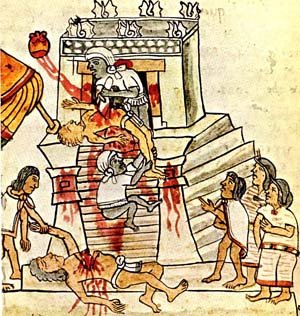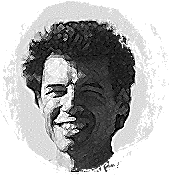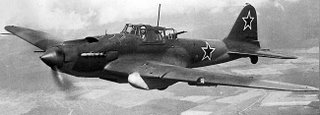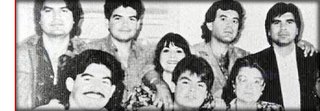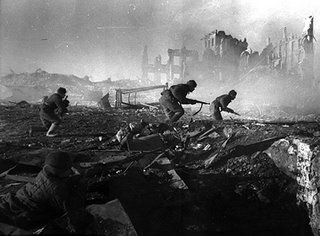This is coolbert:
Here is an interview with
Dr. Jerry S. Horton [PhD Electrical Engineering].
The man who wrote the book, "Shake 'n Bake Sergeant".
"Shake 'n Bake Sergeant" of course refers to the Vietnam era program by which newly inducted recruits were trained to become infantry squad leaders [Sergeant, E-5] within a period of six months. An infantry squad leader who would then be deployed right to Vietnam, commanding an infantry squad for a tour of duty.
[correctly known as the Non-Commissioned Officers Course [NCOC]].
This
WAS a successful program, the comments of Jesse the Body Ventura notwithstanding.
[Jesse referred to the graduates of the NCOC as "twerps"!]
During my own active service,
I WAS vaguely aware of this program, but by then my own military pathway and direction had already been chosen for me.
Dr. Jerry has been so kind to clear up details of which
I was not aware of.
To the interview. JH=Dr. Horton. Bert=myself.
Bert: Were you drafted or did you enlist? If you did enlist, did you do so under the pressure of the draft?
JH: I was drafted, I ran out of money to go to college and went to the draft board an told them to draft me. I wanted to serve 2 years and then go to college on the G.I. Bill.
Bert:
What age were you at the time?
JH: I just turned
20 years old.
Bert:
What state were you from when you entered the service?
JH: I was from
West Virginia. It was the state with the
highest percentage of casualties for its population during the Vietnam War. A little known fact.
Bert: Do you come from a family with a record of military service?
JH:
No, not at all. But I was from West Virginia – and all my uncles were in World War II. My Dad was too young.
Bert: Did you grow up in a
rural or a city background?
JH: I grew up on the block, playgrounds of Charleston West Virginia. I was a basketball junkie.
Bert: You were then a fan of Jerry West and the UWV Mountaineers?
JH: I was a great fan of Jerry West and once he got to the Lakers. I also thought that Elgin Baylor and Oscar Robinson with West were the most talented I have ever seen. I saw them all play in West Virginia in a Sportman’s tournament after the pro season. Jerry West used to jump center in college at 6’3”.
Bert: Are you then of the Scotch-Irish heritage that has historically contributed a lot to the U.S. military? Have you read the recent book by James Webb, "Born Fighting", about that cultural group?
JH: I have never read the book but I will. I think I have Irish and know I have Indian and Italian in me.
Bert: When did you
become aware of the NCOC program?
JH:
Only when I finished AIT and I was asked if I wanted to go.
[AIT=advanced individual training. The step subsequent to basic training.]
Bert: You are obviously a person of intellect [PhD]! Do you consider that those in NCOC were at least above average as well?
JH: I believe that those in the NCOC program and OCS for that matter were above average. I am not sure how the selection was made, maybe on test scores entering the service. In my case I had one year of college and made excellent grades but simply ran out of money. As a high school student
I was not motivated . The time spent on playgrounds and basketball were my priority, I did not make the grades to get a scholarship.
Bert: I would think that you and the others in the NCOC can be categorized as being
highly motivated self-starters with initiative. Correct?
JH:
We were highly motivated. We were selected to go to the school. Maybe based on our tests and what our trainers thought of us. I am not sure exactly. The OCS was more rigorous in spit and polish and more time spent on physical training as I remember.
[OCS at the time was six months long and
DID spend a lot of time on spit and polish and such. And also physical training too. And a lot of what is normally called "chickenshit". It seems this was
NOT the case with the NCOC!!
NO "chickenshit"!!]
JH: At 18 I went to the steel mills of Chicago and saved enough money for one year of college and after working in the steel mills promised myself I would graduate from college one day. At the time I did not know I was going to have to go to Vietnam to do it. I believe there
were a lot of the men just like me.
Some college, had some motivation to get ahead in life and motivated to be a leaders. Bert: Did you enter into the program with "eyes wide open", knowing what you were getting into?
JH:
I had no idea what I was getting in to. We went through much of the training and harassment that officer’s went through and I had no idea at the time I signed up. I figured if I were to go to Vietnam then I wanted the best and most training I could get. I did not really know what war would be like at that time, I was only guessing.
[this quite well could be the training and harassment at basic and AIT level!!??]
Bert: To agree to enter the course
did not make you obligated for further service? I.e., if you were drafted, and obligated for a two year tour, entering the NCOC course
did not make you obligated to do six months more of service, for instance?
JH:
No, it did not obligate you for more time in the Army. I do not think it should have since we had a pressing problem that had to get solved, that would have gotten in the way.
Bert: Did you first have complete basic training and advanced individual training [infantry] before entering the NCOC course? Or were those levels of training incorporated into the entire program?
JH: No
we finished basic and AIT first.
[Jerry was already qualified as an infantry and the rudimentary level
BEFORE entering into the NCOC course!!]
Bert: Did you train in the states by training others before going to Nam?
JH: We trained
AIT for three months before being shipped overseas. For me, dealing with the people aspect of leadership was old hat, I grew up on the block, played sports and knew the human dynamics to motivate, for those who did not have that experience growing up this would be
a critical step in their development in my opinion.
Bert: What rank did you receive upon graduating the NCOC program?
JH: I was an E-5 upon graduation.
Bert: I understand that most graduates received the Sergeant E-5 rank, and
SOME, honors grads, got the rank of Staff Sergeant E-6. Is this so?
JH: Some were motivated to rise to the top at E-6 mainly they volunteered in the school to be the leaders etc… Most of us were not there for a career, we were being prepared for our 12 month stint in Vietnam as infantry squad leaders.
Bert: Was the course held at only one post or several? What was that post or posts?
JH: It started at Ft. Benning and then later was performed at some other posts. It started for infantry but then it was used for a few other MOS’s. We mainly needed infantry leaders since no one wanted to be in the infantry at the time. It turns out that once your in it and survive it then your proud you were an infantryman. It’s kind of like being from West Virginia, your proud to be a hillbilly. I was a hillbilly infantryman.
Bert: Did the course have a high or substantial
drop out rate?
JH:
Not really. They
did not give us the harassment that they gave Officer’s in OCS. It was important that we finish and do it quickly. The career sergeants were leaving the Army because of Vietnam and the needed us. They actually had no choice but to do this. Bill Wooldridge, the Sergeant Major of the Army at that time, pushed this idea through and later Col. Hackworth got involved.
Bert: Did you
ever doubt what you had gotten into and wanted to quit?
JH:
No. After I got into it, I realized that this was the best training I ever had. Everything was first class and they were treating us like leaders. They convinced us we could do this and that gave the confidence. I was born in the Salvation Army and grew up on the streets of West Virginia, I knew how to handle myself and how being a team player works – I spent my childhood on the basketball courts. A key element here is learning to
operate as team and to motivate people. I believe this has served me my whole life. I learned how to control me ego to get the job done.
Bert: 80 % of the course was in the field?
JH: I believe that was the case, but there was quite a bit of classroom training and by some of the best instructors I have ever been taught by, they were all Vietnam veterans, mostly rangers.
Bert: The instructors were all Vietnam vets or a high percentage thereof?
JH: Almost all were Vietnam veterans.
Bert: How well did the course really prepare you for Nam?
JH: I cannot think of anything else they could have done except maybe
more rigorous physical training with actual 80 pound rucksacks on our backs. I do not know of any physical training that would get a soldier ready for the physical torture of Vietnam. Vietnam was the hardest thing I have ever done and a good part of it was the daily physical grind of humping with the rucksack, ammo, food and water through mountainous jungle at the same time worrying about getting shot at all the time.
Bert: In the NCOC, how much more MOS skills did they teach you? Obviously, you would have to learn what else you needed to know just to function as an infantryman, and then on top of it, learn a squad leaders tasks as well. This is a formidable lot to learn and master in a short time.
[It is said that in infantry AIT, the troop learns about half of the 150 tasks that he needs to know to function properly. The rest is supposed to be learned at unit level].
JH: It is a long time ago. But I remember going to state-of-the-art classrooms given training by the very best instructors I have ever had. We covered everything the officer’s did and were in the same classrooms. Our instructors were savvy, they made us pay attention and realize that our lives and our men’s lives were dependent on how much we learned. We knew how important it was and over a period of time this environment caused us to believe that this was real and it was going to happen – the way they taught gave us the reality check we needed to learn as much as we could.
Bert: How well did the course really prepare you for being
a squad leader?
JH:
I was well prepared, particularly mentally. I had the confidence, the knowledge and I knew I could handle it. I learned that had to motivate my men and work with them and that I would not ask them to do anything I would not do. Very quickly, I adapted. I wanted to take care of them and make sure they did not do anything stupid and at the same time I made them understand we had to get the job done. To do that, we had to be on guard and be prepared. At the same time
I was confident in the technical aspects of the job since I had so much training. I knew I had to be the leader.
Bert: Did you instantly assume command of your squad upon arriving in Nam or were you given a short time of adjustment?
JH:
I instantly assumed command. No time for adjustment.
Bert: Did you encounter
a lot of resentment about achieving the rank you did as fast as you did?
JH:
Absolutely yes. At first there was a lot of uncertainty from my men. I had to win their confidence. I had to be mentally tough. They had to call me Sergeant Horton, and I demanded respect but at the same time I made them realize from the get go that I would not get them killed by doing something stupid. I did not get any resentment from my superiors in the field in Vietnam, they welcomed me with open arms.
One day I threatened to kick one of my men’s ass since he refused to dig a foxhole , we had been humping all day and before we settled for the night we all had to dig foxholes. I got permission from the Captain to kick his ass, and once I started at him, he started digging to China, after that we were the best of friends.
Bert: Do you mean
literally of figuratively in this case, "kick, ass"??
JH: Yes
I meant literally. We were in a war zone and he disobeyed a direct order and I lost my temper. He flew off the handle in front of the men. I treated my men with respect and would never ask them to do something I would not do. I believe to this day, I did the right thing. Later in the tour, this man and I charged an enemy bunker together and we went out on the same Dustoff both of us wounded with him laying on top of me and as the enemy fired on the Dustoff I saw a bullet go through his arm. We called him the Flea. Thirty years later while I was doing research in the National Archives for my book, I came across an order for a Silver Star with his name on it. I called him then without ever talking to him for thirty years and read him his Silver Star citation. He was a hero. He did tell me that he thought I did a damn good job as a sergeant. That meant a lot to me.
I had no experience stateside with respect to resentment since I came home wounded and spent six months in Walter Reed Hospital.
Bert: Were you questioned about your ability by your peers?
JH: I only dealt with me squad and those immediately above me. I had no experience with peers.
Bert:
Were you personally offended by Jesse the Body calling the "Shake n' Bake Sergeants" twerps?
JH:
At the time, yes. I had forgotten about Vietnam altogether and his statement motivated me to find out what happened , how did I do as a sergeant , did I have honor. So I journeyed back in time to find out the answers to these questions. I found honor. All of us had honor and we all were and are now a band of brothers. I say thanks to Jesse otherwise I would have never found these things out.
Bert:
Is there anything that you could learned that would have better prepared you for Vietnam?
JH:
I don’t know. I know that our overall tactics could have been better. We needed a lot more infantry. The enemy had more infantry. I cannot really answer this question. More training is better and of course the jungle has its own unique problems.
I will say this, to be successful in combat not only your instinctive reactions have to be good but you must be able to
think and be smart and to remain calm. We need leaders that can do it all. Anything you do to enhance this will improve your chances of survival.
Bert: What
surprised you most about Vietnam?
JH: I had no idea that it would be
so physically demanding.
Bert: The maximum weight for a troop to carry is about 1/3rd of his body weight. Beyond that, the troop is debilitated and loses ability to fight. Your comments about all this extra weight?
JH: Of course, this during a firefight the rucks were dropped, you cannot move on the enemy with them. Our company would move from point a to point b and set up ambushes on a platoon or squad basis. We were constantly searching for the NVA in these mountains and had to take our supplies on our backs, our division was stretched then over the largest operating area in NAM (Central Highlands) and that is why we were loaded with that much weight - it was approximately 80 pounds more or less.
Bert: Is this 80 pounds in addition to the fighting load, or a rucksack with the fighting load that weighs 80 pounds total??
[The fighting load would consist of the uniform, helmet, boots, rifle, ammo with pounches, grenades, web gear, canteen full, entrenching tool, wound dressing. Anything beyond that is existence load.]
JH: I would say the
total load was 80 pounds. In my last day in the field when we were surrounded, the wounded gathered our rucks around us and used them for protection. So we not only carried stuff in them we used them for protection.
Bert: Was the M60 machine-gun the squad automatic weapon you employed?
[the Army and Marines in Iraq are going back to using the M60 for city fighting, replacing the much more modern M249 with a weapon first designed in the basic form by the Germans in 1942!!!]
JH:
Yes it was.
Bert: That is a gunner carrying 34 pounds right off the bat not considering the rest of the load he has to carry. My understanding is that each other troop in the squad would carry an extra load of two 100 round belts each. That is for each other squad member in the troop an additional 14 pounds of weight too. Your comments?
JH: That is correct. The ammo for the M60 was spread among the squad. Also, each M60 gunner had an assistant. Believe me, no one complained about it, since
it's [M60] firepower saved our butts more than once. Being in the mountainous jungle as we were, I do not think we could carried any more weight than we did.
Bert: Did you or any of your subordinates ever suffer from debilitating jungle diseases?
JH: There were quite a few in the company that got
malaria. At least one or two that got cancer later thought it was from Agent Orange.
Bert: Thank you Dr. Horton.
coolbert.


